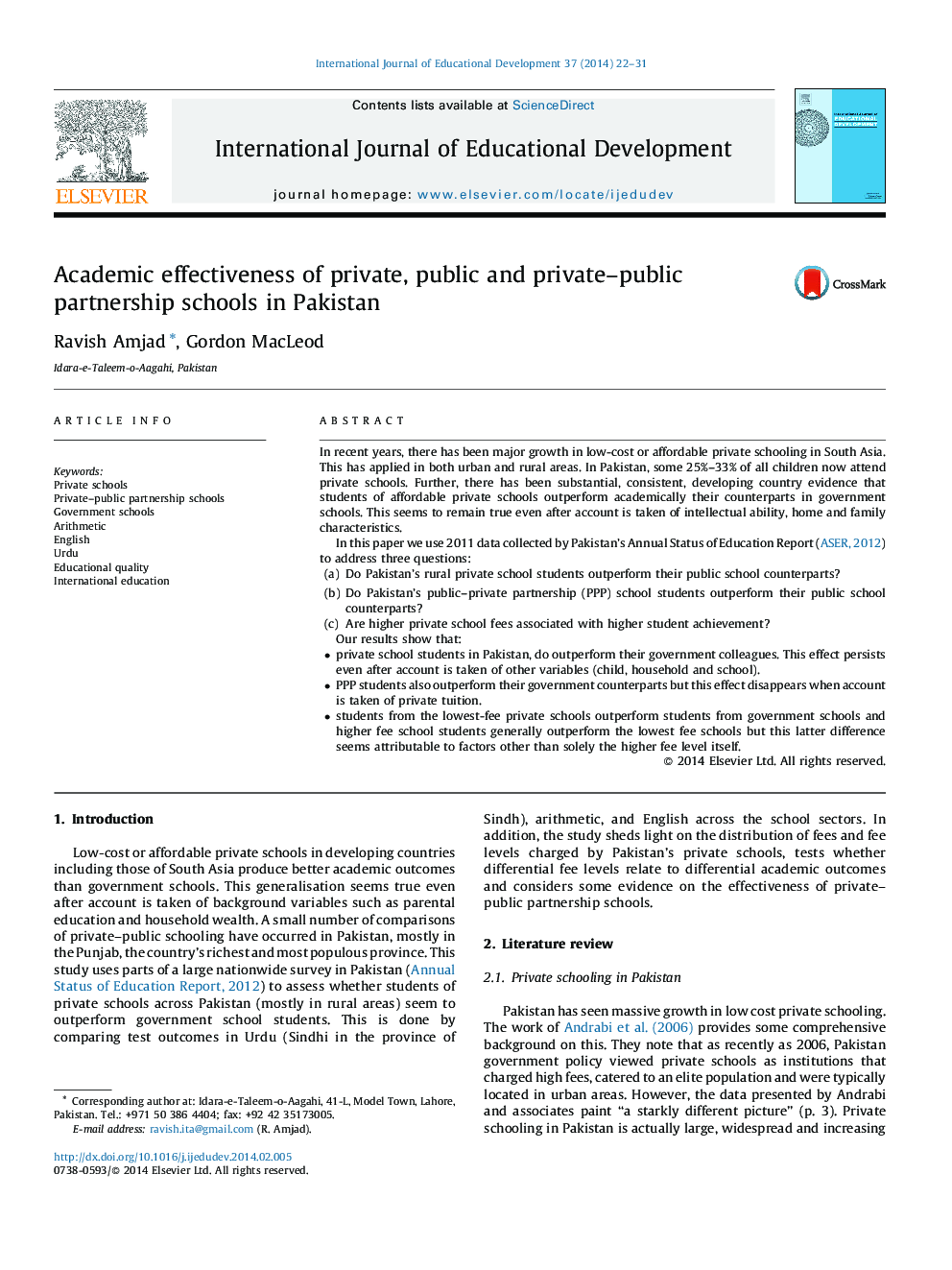| Article ID | Journal | Published Year | Pages | File Type |
|---|---|---|---|---|
| 356162 | International Journal of Educational Development | 2014 | 10 Pages |
•Pakistani private and public–private partnership (PPP) schools outperform public schools.•Private school effects remain even after controlling for child, household and school variables.•PPP school superiority over government schools is no longer visible after controlling for other variables.•Controlling for private tuition “explains” private school superiority.•Educational attainment does not increase alongside increased fees.
In recent years, there has been major growth in low-cost or affordable private schooling in South Asia. This has applied in both urban and rural areas. In Pakistan, some 25%–33% of all children now attend private schools. Further, there has been substantial, consistent, developing country evidence that students of affordable private schools outperform academically their counterparts in government schools. This seems to remain true even after account is taken of intellectual ability, home and family characteristics.In this paper we use 2011 data collected by Pakistan's Annual Status of Education Report (ASER, 2012) to address three questions:(a)Do Pakistan's rural private school students outperform their public school counterparts?(b)Do Pakistan's public–private partnership (PPP) school students outperform their public school counterparts?(c)Are higher private school fees associated with higher student achievement?Our results show that:•private school students in Pakistan, do outperform their government colleagues. This effect persists even after account is taken of other variables (child, household and school).•PPP students also outperform their government counterparts but this effect disappears when account is taken of private tuition.•students from the lowest-fee private schools outperform students from government schools and higher fee school students generally outperform the lowest fee schools but this latter difference seems attributable to factors other than solely the higher fee level itself.
